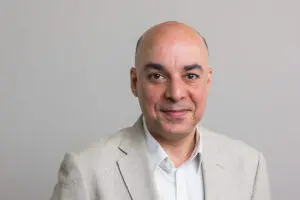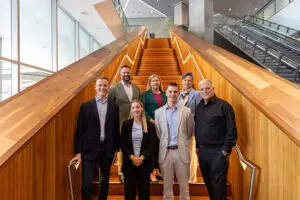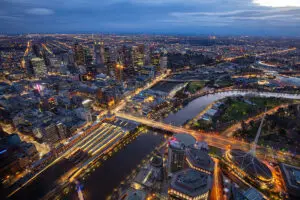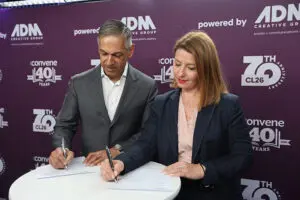The result of an energy audit, the solar panels combined with a power factor correction – broadly a system adjustment to boost efficiency – bring down supply-side carbon emissions by 7.2 per cent.
“These two quick and simple solutions drastically reduce our emissions, so of course we jumped at the opportunity,” said Luke Fraser, CEO of Artemus Group, which owns Howard Smith Wharves.
“We have the goal of becoming the most sustainable precinct in the world and we’re proud to continue to partner with industry leaders who are supporting us to achieve our goal.
“It’s exciting to continue redefining sustainability in hospitality as we work collaboratively to raise the industry standard and to support national emissions reduction targets and help the country toward net zero by 2050.”
Artemus Group is looking to reduce emissions across the precinct by 44 per cent by June 2026, compared to 2022 levels.
Waste to landfill at Howard Smith Wharves has already been reduced by 97 per cent, which has also had an impact on carbon emissions.
Artemus Group worked with Origin Zero on the solar array and the power factor correction. The two organisations are also working on a kitchen electrification study.
“We’ve worked closely with Howard Smith Wharves to understand their business needs and identify the right solutions to help achieve their ambitious sustainability goals,” said Origin Zero’s general manager of enterprise and strategic partners, Liam McWhirter.
“The first step in the process was conducting a full energy audit and carbon assessment. We’ve since been able to implement a range of initiatives together, including the installation of a rooftop solar system that meets heritage requirements and will generate a considerable portion of Howard Smith Wharves’ day-time energy usage.
“Alongside achieving meaningful carbon emissions reductions, our work with Howard Smith Wharves will also deliver significant energy savings.”
While the decarbonisation of Queensland’s energy grid will deliver a 25 per cent reduction in Howard Smith Wharves’ own carbon emissions over the years ahead, the energy audit found there was a 7.7 per cent emissions reduction possible through making adjustments across the precinct to use less energy, like using a heat pump to supply chilled water.
“Our next step is to establish a plan to replace our gas appliances, obtain designs for chilled water heat recovery and buy the green power we need – as well as implementing some other changes the audit identified that we can make for smaller gains, like optimising fans in the car park,” said Fraser.
“It’s our vision at Howard Smith Wharves to become the most sustainable precinct on the planet. We want to redefine the benchmark for sustainability in the hospitality industry in Australia.”


